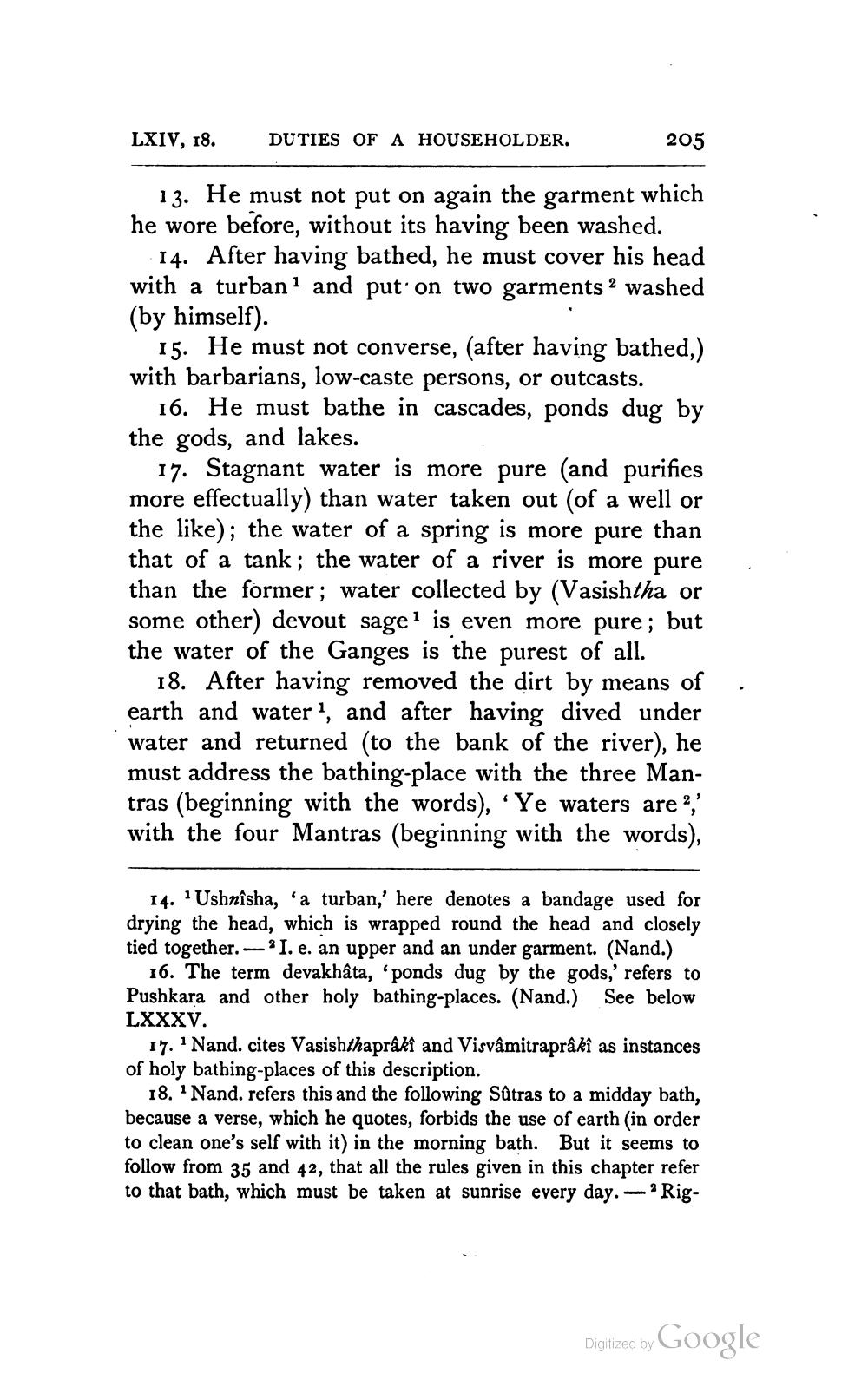________________
LXIV, 18.
DUTIES OF A HOUSEHOLDER.
205
13. He must not put on again the garment which he wore before, without its having been washed.
14. After having bathed, he must cover his head with a turban and put on two garments 2 washed (by himself).
15. He must not converse, (after having bathed,) with barbarians, low-caste persons, or outcasts.
16. He must bathe in cascades, ponds dug by the gods, and lakes.
17. Stagnant water is more pure (and purifies more effectually) than water taken out (of a well or the like); the water of a spring is more pure than that of a tank; the water of a river is more pure than the former ; water collected by (Vasishtha or some other) devout sage 1 is even more pure; but the water of the Ganges is the purest of all.
18. After having removed the dirt by means of earth and water, and after having dived under water and returned (to the bank of the river), he must address the bathing-place with the three Mantras (beginning with the words), 'Ye waters are ?, with the four Mantras (beginning with the words),
14. Ushnîsha, 'a turban,' here denotes a bandage used for drying the head, which is wrapped round the head and closely tied together.— I. e. an upper and an under garment. (Nand.)
16. The term devakhâta, ponds dug by the gods,' refers to Pushkara and other holy bathing-places. (Nand.) See below LXXXV.
17. Nand. cites Vasishthaprâkî and Visvâmitraprâkî as instances of holy bathing-places of this description.
18. Nand. refers this and the following Sûtras to a midday bath, because a verse, which he quotes, forbids the use of earth (in order to clean one's self with it) in the morning bath. But it seems to follow from 35 and 42, that all the rules given in this chapter refer to that bath, which must be taken at sunrise every day. - Rig
Digitized by Google




